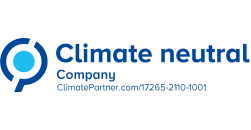In the last two years, STRG.at has transformed itself into an agile service organisation (see above). This step was incredibly valuable in this situation. We immediately recognised many changes. By coincidence (there was a suspected corona infection in the office in the first week of March, which to our relief turned out not to be a COVID-19 infection in the end) we switched to home office on March 5, 2020. Due to our agile setting in the company we had already set up the structures we needed. We are constantly working intensively via remote connections with our partners in Slovakia and thus already had the necessary experience. The changeover went perfectly and had surprisingly little impact on the production company. In the end, productivity has increased because you can work in a concentrated way and the scheduling is up to you. Due to the daily short coordination meetings with all our teams (dailies), colleagues stay connected and remain in contact with the company. I think without these structures it is challenging (except of course in very small companies). In an organisation with almost 30 people, this is already a different number. Because of the early move to the home office we also had the opportunity to make some improvements to the toolset, VPN connections and so on, before we completely closed the office on the 15th March.
For our customers, it was also a very short phase in which they considered postponing things and waiting for an “after”. It was clear to us that this lockdown would last at least two months and that even after that we would reimplement an office routine, carefully. Therefore, we also influenced our customers and passed on our knowledge about remote work to them. Already in the second week, I held a workshop with a large member organisation in Austria via Google Hangouts, with almost 20 participants
.
I am convinced that we will be able to take many of the learnings with us on an “after”. We will divide our future life into a before and after COVID-19 era and we will be able to see the changes in our behaviour. What’s impressive is that in just one day, I held sales presentations with well-known partners in three different European locations Paris, London and Berlin. One year ago, I would have been on the road for three days for these meetings. For me, the new normality to hold these appointments virtually is one of the most significant gains that come out of this crisis.
Economically, this is, of course, the biggest challenge we all could have imagined. But I am an incorrigible optimist and convinced that we have to learn from this crisis to organise ourselves better in the future.
As a company, we are part of the “Entrepreneurs for Future” movement. It is my conviction that this lockdown must be seen as a positive influence on our climate policy. After COVID-19 we must try not to fall back into the madness from which we came from. We are talking about business models that are not working and outdated models that we have to say goodbye to. The economy and its requirements have always changed over time. This time it would be time to use these changes for better cooperation and a re-evaluation of our basic economic activities.
A new normality has the task to restore civil liberties and to develop a climate-friendly infrastructure further. Motorways and airlines are no longer a part of this. These are dated concepts from the last millennium. It is primarily about the possibility of digitalisation and its positive effects on climate issues. Real performance in Internet connections, toolsets that allow decentralised work and still enable international cooperation and the willingness to rethink working methods in the minds of the people involved.


